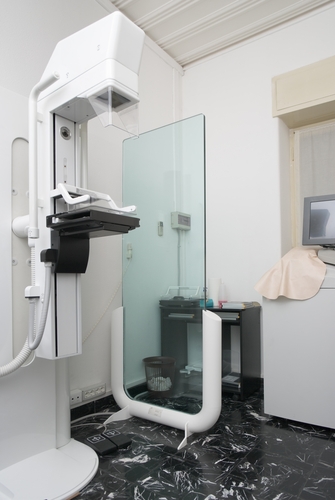With radiologists searching for new ways to conduct safe medical imaging procedures, reducing radiation exposure in pediatric exams have become an integral part of the process. Because their bodies are still developing, children are particularly susceptible to overexposure and are at high-risk of developing ailments as a result of repeated scans.
According to HealthImaging, although imaging technologies have improved the treatment of cardiac conditions, inherent risks still exist in pediatric radiology. Researchers led by Jason Johnson, M.D., from the Duke University Medical Center in Durham, North Carolina, recently published a study in Circulation that revealed children with complex heart diseases are at a higher risk of imaging-induced cancer.
“Although children benefit from advanced imaging procedures for more accurate diagnosis and less-invasive treatment, radiation has potential health risks,” wrote the authors, quoted by the news source. “Several studies have shown that for a given dose of radiation, children are three to four times more likely than adults to develop malignancies.”
Following seven groups of children, the scientists examined 337 patients between 2005 and 2010, who were ages 6 years and younger and were undergoing treatment for heart disease. Over the course of five years, the doctors worked to determine exposure risks from diagnostic imaging procedures. Even though they found that the children experienced minimal radiation exposure in an average year in the U.S., their lifetime attributable risk – or LAR – for cancer exceeded 0.5 percent. The possible development of adverse health conditions was more likely with the patients’ complexity of disease due to repeated imaging with high-exposure modalities that were necessary to provide accurate treatment.
The findings are concerning for young girls, as developing thyroid and breast tissue are vulnerable to mutation. Because of this, the LAR was greater in females than males.
But imaging still has its benefits
AuntMinnie.com reported that researchers from Boston Children’s Hospital found PET and MRI digital imaging to be effective in identifying characteristics of brain tumors in pediatric patients. The results of the study were presented at the meeting of the Society of Nuclear Medicine and Molecular Imaging by co-author Frederic Fahey, D.S.c., director of physics in nuclear medicine and molecular imaging at Boston Children’s.
The research used data from the Pediatric Brain Tumor Consortium, which was created in 1999 by the U.S. National Cancer Institute to improve pediatric treatments for malignant brain tumors. Through the PBTC, diagnostic images from clinical trials conducted from August 2000 through June 2010 were available to the scientists.
“We thought this was a unique opportunity across all the studies in the consortium to pool all those baseline studies over the last decade to see what kind of trends we could see across tumor type, if there were any indications on how initial PET scans looked, and if we could help figure out whether patients would respond or not respond to subsequent therapy,” said Fahey, quoted by AuntMinnie.com.
Of the 203 pediatric patients included in the study, 66 were newly diagnosed with brain stem glioma, glioblastoma multiforme or anaplastic astrocytoma. The remaining 137 children had been treated for the three conditions, as well as medulloblastoma and ependymoma, among other ailments.
One of the more interesting findings from the study was the heterogeneity among the tumors, as parts of the growths were more metabolically active than others. This is important because it might indicate to physicians that the tumor is more aggressive than others and requires individually tailored therapy to provide effective treatments. In the future, the research from Boston Children’s could play a pivotal role in combining in-depth diagnostic radiology with low-dose radiation treatments to prevent the development of imaging-induced cancer.
Contact Viztek for more information.
Ronny Bachrach
Latest posts by Ronny Bachrach (see all)
- Konica Minolta Debuts First-of-Its-Kind Digital U-Arm System at AHRA - July 27, 2016
- Researchers Detect Signs Of Stroke Risk Using MRI - June 27, 2016
- Imaging Biz: Q&A with David S. Channin MD: How to Make PACS Patient Centered - June 22, 2016










